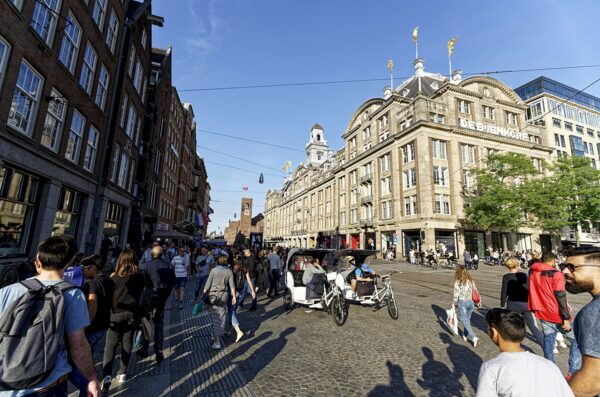 The revelation this weekend that the conservative party put aside concerns about the impact of business rates rises on the high street has prompted renewed calls for a fair deal for British retailers.
The revelation this weekend that the conservative party put aside concerns about the impact of business rates rises on the high street has prompted renewed calls for a fair deal for British retailers.
The Sunday Telegraph reported on February 19 that The Department for Communities and Local Government noted retailers were being “completely clobbered” under the new business rates formula and worked on plans to protect the sector throughout 2014. The plans were then put on hold following the Conservative election victory and government reshuffle in 2015.
It has since emerged that senior conservatives are still ready and willing to stand up for the high street, and pressure is mounting on the government to scrap the proposed hikes completely. “The British system of business rates is absurd, outdated and calculated in a most unfair way” asserts The Sunday Telegraph editor, Ian MacGregor, and few would disagree as some retailers face 400 per cent rises by 2022.
While ordinary retailers, alongside charities, hospitals and doctor’s surgeries, are vulnerable to the rates increase, big supermarkets and online traders such as Amazon – which already have economic conditions and consumer buying trends working in their favour – will see their rates fall or be unaffected.
By February 21st, Chancellor Philip Hammond was murmuring his willingness to soften the blow, as both his and Prime Minister Theresa May’s constituencies are braced for an unwelcome impact, alongside those of other Conservative MPs. The Chancellor’s own Runnymede and Weybridge turf is looking at a 13 per cent rates rise on April 1 when properties are revalued for the first time in seven years.
Business groups are adding their voices to those of MPs by demanding the Chancellor reform how the tax is calculated before the next budget is fixed, hoping to stave off more shop closures in Britain’s struggling town centres. Other ministers downplay concerns, pointing out that up to three quarters of high street businesses – located beyond the booming London and home countries property markets – will see their rates either fall or stay the same.
Experienced industry commentators such as Retail Week editor, George Macdonald, have asserted that: “The latest revaluation of business rates has resulted in stark inequity. While the government says three-quarters of the country will benefit, other parts face a burden that will put some retailers out of business”.
Macdonald adds that while larger retailers have for long been complaining about rates, they are actually more able to afford price increases than beleaguered independents. Those hardest hit by the current proposals include retailers in London, Southwold and West Somerset.
While the battle against rates rages on, retailers are also seeking ways to make the best out of Brexit, with Morrisons rising admirably to the challenge of only 50% of food being consumed in the UK coming via British farmers. Morrisons is on the hunt for up to 200 British suppliers who will enable customers to buy more food that is grown, made, picked or packaged in the UK, within 30 – 60 miles of their local store.
















